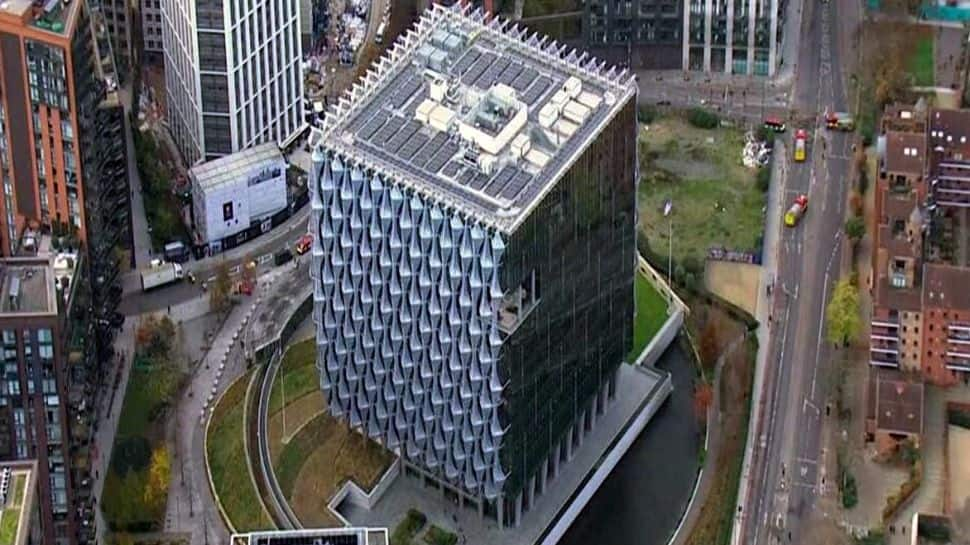Bussiness
The significant events in the global economy over the past week – London Business News | Londonlovesbusiness.com

Last week, U.S. investors moved towards value and small-cap stocks.
The Dow Jones outperformed other indexes, and value stocks outpaced growth stocks by 4.77 percentage points, the largest gap since March 2023.
Despite a global computer system disruption, U.S. trading remained unaffected.
Chip stocks saw a sharp decline after the Biden administration considered export curbs on companies like Tokyo Electron and ASML Holding.
Major chip companies, including Taiwan Semiconductor Manufacturing, Broadcom, and NVIDIA, experienced significant losses.
Political developments also influenced the market. Polls suggesting a Republican sweep in the upcoming elections favored value stocks, expecting lighter banking regulations and higher tariffs under a Republican administration.
Retail sales, excluding gas and auto segments, surged by 0.8% in June, the highest since January 2023. Building permits rose by 3.4%, ending three months of decline. The Federal Reserve reported a 0.6% increase in industrial production, while the Philadelphia Fed’s business conditions gauge reached a three-year high. However, labor market data showed mixed results. Weekly jobless claims increased to 243,000, and continuing claims rose by 20,000 to 1.867 million, the highest since November 2021.
Federal Reserve Chair Jerome Powell noted that inflation and the labor market are now in better balance. The yield on the 10-year U.S. Treasury note fluctuated, initially falling due to easing inflation concerns but spiking later. The municipal bond market absorbed a large primary calendar, while issuance in the investment-grade corporate bond market surpassed expectations. High-yield bonds traded higher amid stronger macroeconomic conditions and anticipated Fed rate cuts.
The pan-European STOXX Europe 600 Index fell by 2.68% due to rising trade tensions between the U.S. and China. Germany’s DAX, France’s CAC 40, and Italy’s FTSE MIB also saw declines, while the UK’s FTSE 100 Index dropped by 1.18%.
The European Central Bank (ECB) maintained its key interest rates at 3.75%, with President Christine Lagarde indicating that the decision for September remains open. Lagarde noted that risks to economic growth are tilted to the downside, and inflation is expected to fluctuate at current levels before declining in the latter half of 2025. The ECB’s Bank Lending Survey revealed an increase in household loan demand for the first time in two years. Industrial production in the euro area fell by 0.6% in May, with significant declines in Germany, Italy, and France.
In the UK, headline annual inflation remained steady at 2% in June, aided by a decline in energy costs. Core inflation stayed at 3.5%, while services inflation was 5.7%. Average earnings, excluding bonuses, grew by 5.7% in the three months to May, down from 6% in April, but still above the Bank of England’s 2% inflation target.
Japan’s stock markets declined, with the Nikkei 225 Index falling by 2.7% and the TOPIX Index by 1.2%. Technology stocks were affected by concerns over tighter U.S. export restrictions to China. Speculation about potential interest rate hikes by the Bank of Japan (BoJ) also influenced the market. The yield on the 10-year Japanese government bond fell slightly, and the yen strengthened due to suspected government interventions.
Japan’s nationwide core consumer price index (CPI) rose by 2.6% year-on-year in June, slightly below expectations. The overall inflation rate held steady at 2.8%. The government downgraded its GDP growth forecast for the fiscal year ending March 2025 to 0.9% from 1.3%, citing sluggish domestic consumption and rising import costs.
Chinese equities had mixed performance, with the Shanghai Composite Index up by 0.37% and the CSI 300 gaining 1.92%, while the Hang Seng Index in Hong Kong fell by 4.79%. China’s GDP grew by 4.7% in the second quarter, below expectations and down from 5.3% in the first quarter.
Retail sales growth slowed to 2% in June, and industrial production rose by 5.3%, slightly better than expected but down from May’s 5.6%. Fixed asset investment grew by 3.9% in the first half of the year, while property investment fell by 10.1%. The urban unemployment rate remained steady at 5%, and the youth jobless rate dropped to 13.2%.
The property sector continued to struggle, with new home prices falling by 0.7% in June, extending losses for the 12th consecutive month. Despite a significant property rescue package, the sector remains a major growth headwind, leaving the economy heavily reliant on exports.
Last week, the U.S. market saw a shift towards value and small-cap stocks, while the European and Asian markets faced challenges from trade tensions, economic data fluctuations, and regulatory changes. Despite these issues, key economic indicators provided some positive surprises, though concerns over labor market stability and geopolitical developments remain










